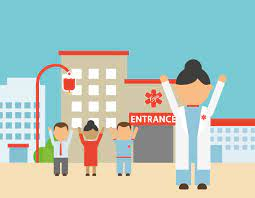Why are medicines so expensive? And why is it so hard to get them?
- Oct 4, 2022
- 5 min read
People around the world are suffering from illnesses that could be treated with medicine. But why is it so hard to get them? Why are medicines so expensive, and why do pharmaceutical companies refuse to sell their products in many poor countries? The truth about drugs isn’t always pretty, but it’s necessary if we want to ensure everyone has access to medicine, no matter where they live or how much money they have. This article will explain everything you need to know about drug prices, including which countries pay the most, how drug patents work, and how big pharmaceutical companies affect policy around the world.
How much does medicine cost around the world?
Prices for medication vary widely by country. An MRI scan will cost around $1,350 in the United States, but just $270 in the UK. Depending on where you live and the type of medicine, you could spend a few thousand dollars per year on prescriptions alone. In some countries, citizens need authorization from an ethics committee before starting a course of treatment—a process that can take years and can leave patients without any access to essential medications. In other countries like Nigeria, most drugs are sold on the black market because of import restrictions which have caused shortages and increased prices. The Global Drug Facility funds 95% of malaria treatments across the world, but demand for these life-saving drugs has been increasing as mosquito populations grow. Governments and NGOs are trying to solve this problem with subsidized generics instead of branded drugs that offer higher profit margins. But many companies refuse to sell their products at lower prices, fearing they'll go out of business. One pharmaceutical company executive said We want rich people's diseases. These problems create a troubling paradox: there's no incentive for companies to provide low-cost medicines when they know they can sell them at high rates. At the same time, developing countries don't have enough money or resources to produce their own medicines locally.

People have been saying this for years
Some reasons for the high cost of medicines include: monopolies and patents, taxes and subsidies, heavy marketing and advertising budgets, government agencies that require specific suppliers. The expense is at times due to the complexity of patent law in the United States which can lead to higher costs for research. One of the common myths about drugs being too expensive is the assumption that all drug companies profit excessively from their products. Actually a lot of people think that pharmaceutical company's efforts in R&D for a new drug will be worth it because there are long-term benefits for those patients who have life-threatening diseases. These drugs are typically not just used as treatment but also prevention of disease. Despite this though, drug companies do make big profits and prices continue to rise every year.
What could we do about it?
It's not uncommon for prescription medications to cost thousands of dollars. Even generics can cost hundreds. It's also difficult, if not impossible, for some people who need these medicines to access the medications they need at a price they can afford. The root of the problem may be due in part to the disparity between what consumers pay and what manufacturers charge. Healthcare businesses say a lot of this has to do with high costs associated with patenting and maintaining exclusive rights on various pharmaceuticals, as well as developing drugs in the first place. But there are things we could do about it. One way would be to bring more transparency into the drug pricing system. There are proposals currently circulating that would require drug companies to release more information about how much they spend on research and development, which would help explain their pricing strategies. A few states have already started requiring disclosures of prices charged by drugmakers for specific treatments covered by state health programs. Another idea: establish an independent government board that negotiates prices with manufacturers; those negotiations could then lead to rebates that make medicines more affordable for patients who don't have insurance or adequate financial resources (in theory).
Pharma companies say ...
Pharma companies say that the costs are due to research and development. These costs for research and development are calculated into the price of the drug. This can mean a high cost for some, but a low cost for others. The government negotiates with pharmaceutical companies to have certain drugs given at lower prices or offered as part of state programs, depending on what state you live in.
The government cannot regulate pharmaceutical companies from doing research and development. They can’t even regulate them for pricing; it’s a free market where everything is determined by supply and demand. This means that not everyone can afford their drugs, so some people have gone through withdrawal. Pharmaceutical companies say they work with state governments to offer lower prices on drugs or even free samples in order to help patients who need their drug but cannot afford it.
Patients and doctors say ...
Patients and doctors say they have difficulty getting the medicine they need. There's a variety of reasons why. In some cases, the patient has never been prescribed medication and doesn't know how much it costs. Others do but can't afford their co-pay, especially for prescriptions for chronic conditions that require ongoing care such as diabetes or high blood pressure. Some hospitals ration the supply of certain drugs because they don't have enough money to buy more. There also have been complaints about pharmacies refusing patients if they don't make a certain amount of money and demanding a cash payment when there isn't one available.
Governments say...
Governments say that this is necessary in order to pay for research and development for new medications, but the truth might be a bit more complicated. As pharmaceutical companies make new discoveries, their patents expire and other companies may come out with competing drugs that are slightly different, or close enough in chemistry so that they're not infringing on patents. However, since these generics have already been used safely by doctors and patients who have had to do without them because of monopolies, they're usually priced much lower than the original brand-name drug. This leads many people - especially those with insurance or government assistance - to take generics instead of higher-priced brand-name drugs unless there's a specific reason they need the original. For example, if you've taken one type of statin before and your doctor prescribes another one, it's important to stick with what you know best. If you don't feel well after switching from one type of blood pressure medication to another, talk to your doctor about the possible side effects before you go back on what feels safe for you.
Final thoughts
Most of the time, people who cannot afford these medications will turn to emergency rooms for help. The ER can then also end up picking up the tab for all the medical care needed because of complications that result from a patient's inability to afford their prescriptions. The final thoughts section should talk about what could be done in order to fix this issue. Possible solutions may include government intervention or better regulation on the pharmaceutical industry. Some countries have intervened by making drugs cheaper and more accessible to the public. For example, France allows pharmacists to negotiate prices with drug companies on behalf of its citizens and provides a universal health care system which makes prescription drugs free.
In America, we could do things like increasing Medicare coverage for patients over 65 years old and Medicaid coverage for those under 21 years old as well as increasing funding for the National Institutes of Health (NIH).
We could also regulate the price pharmacies charge by allowing negotiations between pharmacies and suppliers or mandating transparency reporting requirements so patients know what they're paying out-of-pocket at different pharmacies.




Comments